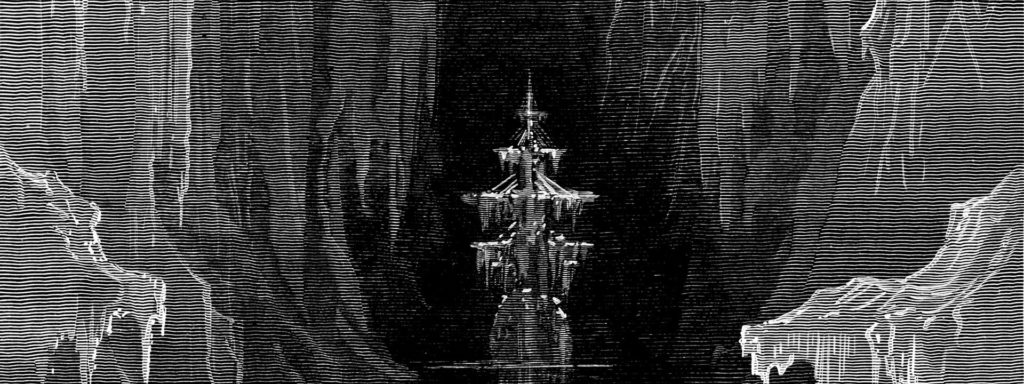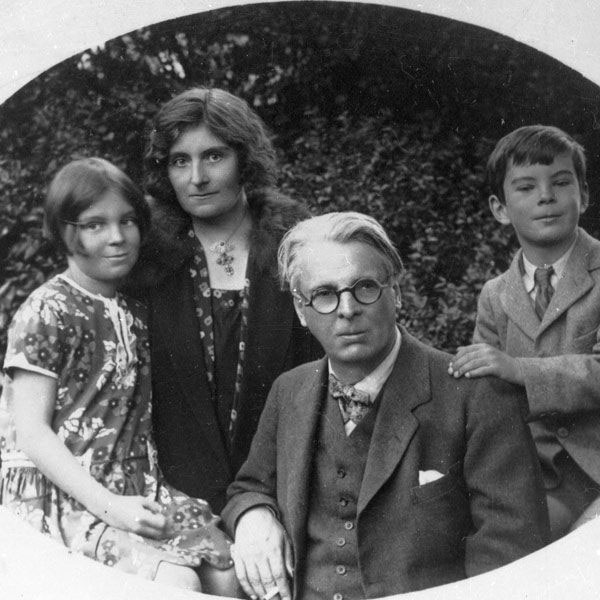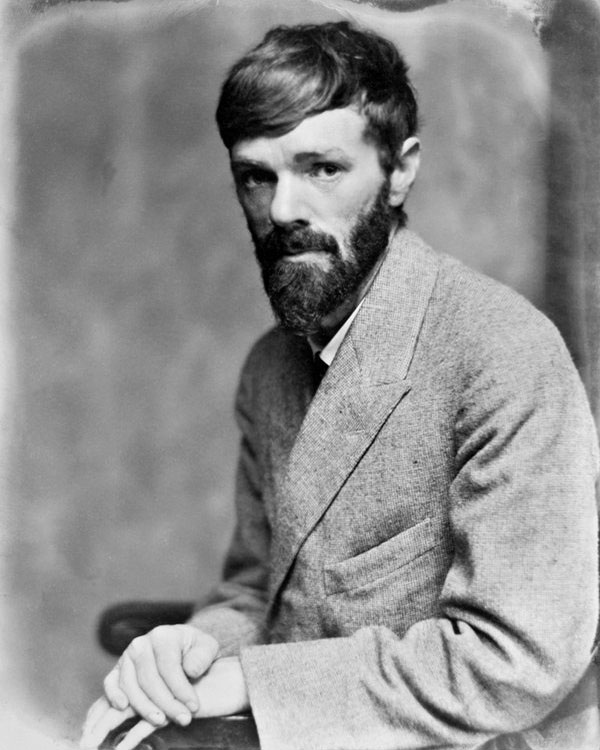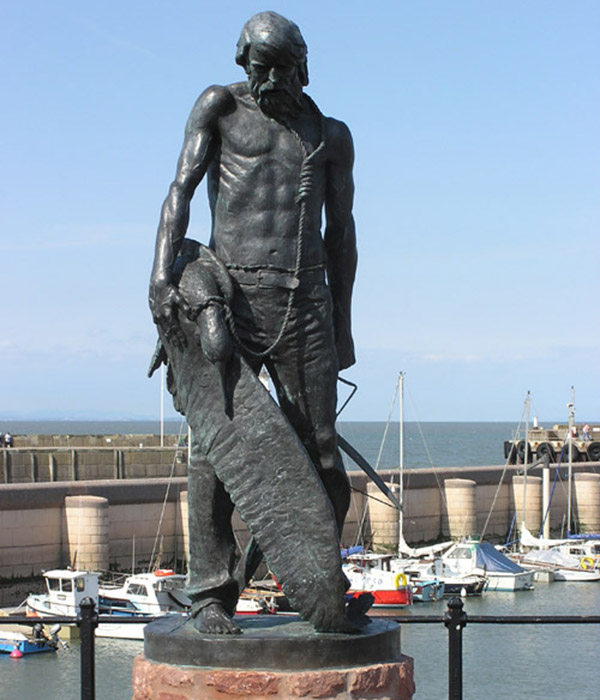Dear Poetry Friends
POETRY CONCERT TWO
This second concert in the new 2021 series celebrates two centenaries before the interval. The ‘symphonic poem’ opener, ‘A Prayer For My Daughter’, comes from W B Yeats’s 1921 collection, Michael Robartes and the Dancer. The ‘concerto, orchestral suite or song-cycle’ work is a four-movement sequence I have put together of poems from D H Lawrence’s major collection Birds, Beasts and Flowers, first completed in March 1921 (the opening three poems) and added to in 1923 (the fourth poem). The concert’s second half is devoted to one work, a reading of Coleridge’s ‘Rime of the Ancient Mariner’ in the 1817 version of the poem he had first published in 1798.

PROGRAMME
PART ONE

W B Yeats, ‘A Prayer for My Daughter’ (1919), from Michael Robartes and the Dancer (1921)

D H Lawrence, Four Poems, from Birds, Beasts and Flowers (first completed 1921)
‘Cypresses’ (March 1921)
‘Fish’ (September 1921)
‘Baby Tortoise’ (March 1921)
‘Mountain Lion’ (March 1923)
PART TWO
Samuel Taylor Coleridge, ‘Rime of the Ancient Mariner’ (1798/1817)

Short introductions to all three poets and their featured poems can be found on the Poetry Concerts Two webpage, where you can also book, at https://www.grahamfawcett.co.uk/event/poetryconcert2march2021-2-2/
Programme notes will be provided beneath the Youtube recording. Just press ‘pause’ and scroll down to find the programme note for each poem before I read it, or have a look through them all before the recording.
From March 15th onwards, bookers will receive links which offer you the choice of YouTube video or downloadable audio podcast for Poetry Concert Two.
HOW TO WATCH OR LISTEN TO POETRY CONCERT TWO
- No special equipment needed. Just a computer, lap-top or iPhone.
- The concert does not go out at a particular time, and Zoom is not involved.
- It is available on YouTube at one click, accessible to everyone who books for it, and as a downloadable audio podcast.
- You do not need a PayPal account to book the concert (£10).
- A debit or credit card enables you to pass straight through the booking process as a Paypal guest. (Just click on the grey Pay By Debit Or Credit Card option bar at the foot of the first Paypal page). Payment is also possible in US dollars and Euros if you live in those currency areas.
RECORDINGS IN THE 2020 ONLINE SERIES ALSO AVAILABLE NOW
For details of the 2020 series of online lecture recordings available, see below. Online lectures throughout 2021 will, month by month, alternate with Poetry Concerts.
TELLING OTHERS
Do forward this newsletter to any friends and contacts who may be interested. Our audience is building thanks to you.
APRIL AND MAY 2021
The April 2021 event online is my lecture on Emily Dickinson, which will be released on April 15. Details on my website from April 1. Poetry Concert Three will be released in May. More details in my next newsletter.
Graham
HOW THE IDEA OF POETRY CONCERTS CAME ABOUT
Ever since I discovered Palgrave’s Golden Treasury and William J Claxton’s Half-Hours With Great Composers about 65 years ago, I have had a feeling that it might be possible to put them together. So the first Poetry Concert was years in the making.
All my life I have been drawn to the shape, structure and content of symphony and chamber concerts, how they so often present three or four works put together in the same programme because of the connection or contrast between them: some – like overtures or symphonic poems – in one movement, others – like concertos, orchestral suites and symphonies – in three, four or five movements, with the major work usually after the interval. It has left me wanting to create concerts like that which have poems on the programme.
POETRY CONCERT ONE
JOHN KEATS (d.1821), THE EVE OF ST AGNES AND POEMS BY JOHN CLARE AND THOMAS HARDY
(available as a YouTube video or a downloadable audio podcast)
In Poetry Concert One, the symphonic poem opener is the first poem in John Clare’s thirteen-poem cycle The Shepherd’s Calendar.
The concerto spot is a five-movement sequence I have put together of poems by Thomas Hardy which tread that line between the earthly and the unearthly in which he was so adept in prose as well as verse.
The concert’s main work is in the second half, given over to John Keats in anticipation of the 200th anniversary of his death in Rome on 23 February 1821 – a reading of his hauntingly dramatic narrative poem ‘The Eve of St Agnes’, whose festival falls each year on 21 January, the day of her death in Rome in 304 AD.
PROGRAMME
PART ONE
John Clare, ‘January’, from The Shepherd’s Calendar (1827)
Thomas Hardy, ‘The Dead Quire’ (1897)
Thomas Hardy, ‘The Chapel Organist’ (1920)
Thomas Hardy, ‘The Five Students’ (1917)
Thomas Hardy, ‘Family Portraits’ (1917)
Thomas Hardy, ‘After a Journey’ (1912-13)
PART TWO
TO MARK KEATS’S BICENTENARY YEAR (d. 1821)
John Keats, La Belle Dame Sans Merci (1819)
John Keats, Hush, Hush ! (1818)
John Keats, The Eve of St Agnes (1819)
The recording is available to book now at https://www.grahamfawcett.co.uk/event/poetryconcert1jan2021-2/
RECORDINGS IN THE 2020-2021 ONLINE SERIES AVAILABLE NOW
For details of the 2020 series of online lecture recordings available, see below. New lectures will be released in 2021 interspersed with the ongoing 2021 Poetry Concerts series.
TELLING OTHERS
Do forward this newsletter to any friends and contacts who may be interested. Our audience is building thanks to you.
All best wishes
Graham
RECORDINGS IN THE 2020-2021 ONLINE SERIES AVAILABLE NOW
Keats 200 – Unparalleled beauty in the Odes, sonnets, letters. To mark the bicentenary of Keats’s death in Rome on 23 February 1821
“I just had to email to reiterate how moving and inspiring I found tonight’s talk – one of the best on poetry I have ever been to. Thank you for bringing Keats’s piercing clarity to us with such grace and humanity. Bright star indeed showing us the way home.” (CW, at Keats Night in Farnham, Surrey).
In the face of never-ending challenges, Keats was fearlessly creative on the page. Dead at 25, his sonnets can stand alongside Shakespeare’s, his poems tread every inch of the meadow of the English language, his letters are the finest ever written in English, and the beauty of his lyrical gift has seldom been surpassed by anyone in any language. More on Keats 200 at https://www.grahamfawcett.co.uk/event/keats200/
Shakespeare the Poet – Shakespeare’s long poems, sonnets, and aria-like moments in the plays
“Thank you for risking the journey and the unknowns. And thank you for a superb evening, one of the very best. You helped me, among many things, to relax into the Sonnets and swim in the one I am reading and let the poet and his words take me to wherever. In so doing you shifted something within me: it used to be apprehension, nervousness, uncertainty, and ‘will I get what I am supposed to get?’ Now I shall invite the words and the magician to talk to me and then join in; and the fun will begin”. (Jeremy Harvey, at Shakespeare the Poet Night, Taunton, 6 October 2020)
To what extent did the author of the Sonnets feel he was writing poems in his plays as though momentarily staging a poetry recital of set pieces to hold an audience’s breath in mid-drama?
More on the Shakespeare the Poet lecture at https://www.grahamfawcett.co.uk/event/shakespeare-3/
W B Yeats, Ireland’s modern Orpheus of song, ballad, lyric and narrative – and a fount of energy for national renewal
“How very much we have enjoyed your Yeats lecture. You have lovely skills in giving us lots of information (and very varied) cunningly arranged so as to illustrate Yeats’s changing vision of things, and the moods and atmospheres and stances-to-the-world that came to him with them. And sometimes too how his rhythms and meters, even verse-lengths, do their job for him. And what a pleasure to hear you read all those favourite poems. As well as some of the Irish ballady ones that we’ve rather skipped over before. Thanks very much for all that”. (Janet & Patrick Coldstream, Hertfordshire).
More on the Yeats lecture at https://www.grahamfawcett.co.uk/event/wbyeats
THOMAS HARDY Poet of virtuoso narratives on love, nature, the human journey, and how to handle the present
“Now there is clarity. There is the harvest of having written 20 novels first”. (Ezra Pound, reviewing Hardy’s Collected Poems). Famed, filmed and widely read for his novels, Thomas Hardy was actually always a poet who happened to write novels too. He started out as one as a young man, and then, in 1895, the second most important date in Hardy’s life for him and for us (1912 being the first) when the critics turned against him for Jude The Obscure, he turned their hostile energy to gold by putting up the shutters as a novelist and returning to poetry, his first love. . . .
More on the Hardy lecture at https://www.grahamfawcett.co.uk/event/thomas-hardy
JOHN DONNE Supreme Metaphysical poet of love, adventure, reason, belief
“Very inspiring. What is great about your talks is the almost urgent need, certainly in my case, to go back to the poems themselves at a deeper level, or even for the first time”. (Celia Purcell, London). Donne’s ‘No man is an island’ challenges our fantasies of separateness, and his advice to “Be thine own palace, or the world’s thy jail” has lost none of its thwack. His exciting fearlessness of invention electrifies the journey. Donne the rebel Elizabethan who re-made poetry, did it his way then, and is, to this day, cool. More on the Donne lecture at https://www.grahamfawcett.co.uk/event/johndonne-metaphysical-love-poet-2/
SAMUEL TAYLOR COLERIDGE Romantic and fantastic poet of the imagination
“I was struck by your evocation of fathers reflecting on their children early in your Coleridge . . . I think I’ve been mainly a prose parent, but identifying with you, and fondly reflecting on my now adult children, I’m combining a little poetic sensibility! Your lectures seamlessly blend exposition with the poems. I’m off now to Kubla and the Mariner”. (Charles Porter, San Luis Obispo). Coleridge was a magician of the word, an irresistible poet of nature and imagination, a wildly inventive writer . . . To meet the Ancient Mariner, old man and poem, at school is never to forget either.
More on the Coleridge lecture at https://www.grahamfawcett.co.uk/event/coleridge-romantic-poetry-mariner-2
D H LAWRENCE, POET Poet of human and animal creatures, love, remembrance
“Excellent. You tie things in so well and so eloquently and give a fabulous contextual view of when and where and what has gone before and may come after when I don’t have a wide knowledge of his poetry. . . Lawrence so sensitive like Van Gogh (his letters are amazing too). And I enjoyed your reflections on demon/daemon. Fascinating. Thank you”. (Chinks Grylls, Taunton). This talk is for all of you who read and love poetry, whether or not you have yet discovered D H Lawrence as a poet and not only as the author of Sons and Lovers, The Rainbow and other novels. . . More on the Lawrence lecture at https://www.grahamfawcett.co.uk/event/dhlawrence-2
WALT WHITMAN Pioneer poet of love, humanity, nature, America, epiphany
“Bravo! Well done! A wonderful re-introduction to the life and art of Whitman, especially suggestive as to some contemporary influences on the development of his style. Your lecture reminded me repeatedly what a copious genius Whitman is/was ,- and has sent me straight off to try to write again (after feeling increasingly stale as this Covid thing has gone on.) And all beautifully written and delivered too. Thank you!” (Keith Chandler, Bridgnorth, Shropshire). Readers and listeners love Whitman for his invigorating wisdom shedding light on our lives left, right and centre . . .
More on the Whitman lecture at https://www.grahamfawcett.co.uk/event/walt-whitman
WORDSWORTH Revolutionary Romantic poet of childhood, nature, memory
“We enjoyed it very much, and your method of expressing your thoughts”. (John Grantham, Dorset). Wordsworth’s absolute devotion to his beloved Lake District is a luminous celebration of the vital spirit of place and how to express deep gratitude for belonging there. What is more, Wordsworth’s at-first-sight-formidable output is embraceable as we walk and climb, stop, look, listen, breathe and feel with him everywhere he goes. The Prelude is one of the most beautiful, engrossing, accomplished, sustained, expansive and invigorating poems in our, or any other, language. . .
More on the Wordsworth lecture at https://www.grahamfawcett.co.uk/event/williamwordsworth
EDWARD THOMAS Poet of Adlestrop, nature and the War
“Thank you for the splendid talk on Edward Thomas. . . Lovely to hear you lifting the poems from the page. How tender his poems are, joy, pain and longing gently folded in together – I am thinking about how one folds flour into whipped egg whites when making a soufflé, fine particles of flour falling into the furrows of egg left by the spoon edge. I am doing a lot of cooking in the lockdown”. (CFG, Wiltshire) Walter de la Mare said Thomas’s aim had been “to express the truth about himself and his reality”. This throws light on how poetry suddenly surfaced in him: it was there all the time. . .
More on the Edward Thomas lecture at https://www.grahamfawcett.co.uk/event/edwardthomas
POETRY IS COMMUNICATION Poems that connect with us
“I enjoyed it very much indeed. It is wonderful, for a start, to have all that poetry read to one, but then to have your wise and imaginative thought linking it all together is a stimulating and restorative blessing after a day of sadness for the world and personal fatigue and frustration brought on by internet incompetence!” (Brenda Herbert, London). Graham invites his audience to live and re-live their own personal relationship with all the poetry they have ever read and listened to since they were old enough to find pleasure and meaning in it . . . , even as though for the first time. More on the Poetry Is Communication lecture at https://www.grahamfawcett.co.uk/event/poetryiscommunication
